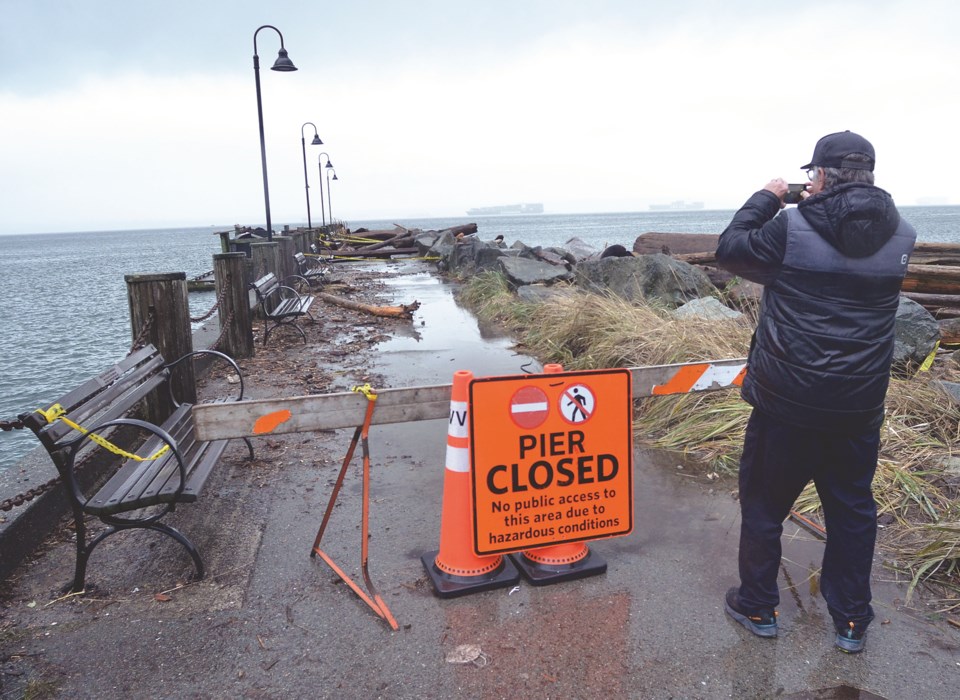There is a movement under way from environmental groups urging municipalities to sue major fossil fuel companies for damages related to climate change.
City of Vancouver council voted in July to earmark up to $660,000 in the next municipal budget for legal action that could result in oil companies being ordered to help cover the costs of infrastructure repairs.
The North Shore's trails and waterfront have taken a beating in recent years thanks to worsening storms. But, a poll of North Shore residents finds little support for suing oil companies to cover the cost.
North Shore News polled 1,123 readers and asked the question: Should municipalities sue oil companies for climate change damages?
The poll ran from Aug. 4 to 15 on our website. Of the 1,123 votes, we can determine that 412 are from within the community. The full results are as follows:
The results of the poll are at odds with one commissioned by West Coast Environmental Law, the firm organizing the campaign. Their poll, which included 807 B.C. residents, found 69 per cent support for lawsuits targeting the largest oil polluters, while only 20 per cent of respondents were opposed.
Results are based on an online study of adult North Shore News readers who are located in North Vancouver and West Vancouver. The margin of error – which measures sample variability – is +/- 2.92%, 19 times out of 20.
North Shore News uses a variety of techniques to capture data, detect and prevent fraudulent votes, detect and prevent robots, and filter out non-local and duplicate votes.



